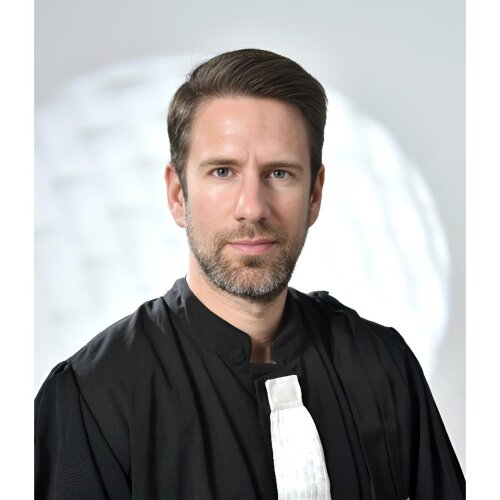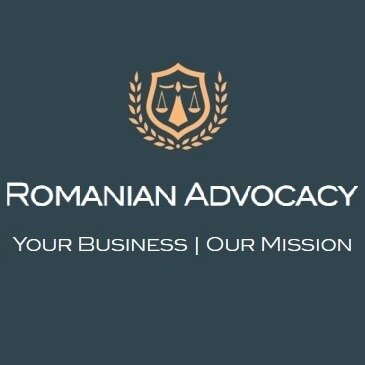Best Trusts Lawyers in Romania
Share your needs with us, get contacted by law firms.
Free. Takes 2 min.
Or refine your search by selecting a city:
List of the best lawyers in Romania
About Trusts Law in Romania
Trusts, as a legal concept, are traditionally rooted in common law systems. Romania, being a civil law country, does not have a direct equivalent to the common law trust system. However, similar mechanisms that cater to some trust-like functions might be achieved through contractual arrangements and institution-like foundations or fiduciary contracts. Since the concept of trusts is relatively new and not fully integrated into Romanian law, understanding how to navigate the current legal landscape requires professional legal guidance, especially for those familiar with trust systems in countries like the UK or the USA.
Why You May Need a Lawyer
People might require legal assistance related to trusts in Romania under various circumstances. Here are some common scenarios:
- Setting up an estate plan that includes a trust mechanism within Romanian legal constraints.
- Inheriting property or assets that are managed through international trusts.
- Engaging in business transactions that involve fiduciary relationships or require consideration of beneficial ownerships.
- Dealing with cross-border legal issues where Romanian assets are part of a foreign trust.
- Resolving disputes regarding trust-like arrangements or fiduciary obligations.
Legal advice ensures that any arrangement complies with Romanian law and international standards where applicable.
Local Laws Overview
In Romania, while there is no direct provision like trusts in common law, several legal vehicles can serve similar purposes:
- Fiduciary Contracts: This allows parties to create a fiduciary relationship where one party administers assets on behalf of the other.
- Foundations: Non-profit organizations can hold and manage property for specific purposes, which can be used in estate planning.
- Civil Code Provisions: Various aspects of the civil code can be utilized creatively to replicate some trust-like functions.
Understanding and using these legal mechanisms effectively usually requires expert legal advice to ensure proper compliance and execution.
Frequently Asked Questions
What is the closest equivalent to a trust in Romanian law?
The closest equivalents are fiduciary contracts and foundations that can emulate trust-like structures under certain conditions.
Can a foreign trust hold property in Romania?
Yes, but managing this requires careful attention to both Romanian property law and the laws governing the trust.
Is it possible to create a testamentary trust in Romania?
While a direct testamentary trust cannot be formed, similar outcomes can be achieved through detailed estate planning and contractual agreements.
How are fiduciary duties defined under Romanian law?
Fiduciary duties in Romania revolve around principles of loyalty, transparency, and accountability as outlined in the civil code.
Does Romania recognize the concept of beneficial ownership in trusts?
Beneficial ownership can be recognized in cross-border transactions and arrangements but needs careful structuring to align with Romanian laws.
Are trusts subject to taxation in Romania?
While there's no specific trust tax regime, income generated from trust-like structures may be subject to standard income and corporate taxes.
How can a foreign will be executed in Romania?
Ensuring a foreign will's execution involves legal validation that it meets both Romanian law and the laws of the jurisdiction where it was drafted.
Do Romanian laws accommodate charitable trusts?
Charitable activities can be conducted through foundations and other registered non-profit entities.
Can a Romanian citizen be a trustee of a foreign trust?
Yes, provided they abide by Romanian laws while managing assets and maintain compliance with foreign trust regulations.
What legal challenges are often faced with trusts in Romania?
These include compliance issues, understanding cross-border legalities, and aligning foreign trust concepts with local laws.
Additional Resources
For further information and assistance, consider the following resources:
- Romanian Bar Association: A key resource for finding qualified legal professionals in the field.
- Ministry of Justice: Offers guidelines on property and estate management.
- Notarial Chambers in Romania: Can assist with estate and document authentication.
- Chamber of Commerce: Provides insights into legal considerations for business-related fiduciary matters.
Next Steps
If you are seeking legal assistance in trusts or trust-like arrangements in Romania, consider the following steps:
- Research and Understand Your Needs: Determine the specific legal assistance you need regarding trusts.
- Consult a Specialized Lawyer: Engage with legal professionals who specialize in Romanian estate planning and fiduciary law.
- Gather Relevant Documentation: Prepare all necessary documents, such as wills, property deeds, and international trust agreements.
- Schedule a Consultation: Meeting with a lawyer will help clarify options and outline the way forward.
- Maintain Compliance: Regularly update and review any fiduciary or trust-like arrangement to stay aligned with current laws.
Lawzana helps you find the best lawyers and law firms in Romania through a curated and pre-screened list of qualified legal professionals. Our platform offers rankings and detailed profiles of attorneys and law firms, allowing you to compare based on practice areas, including Trusts, experience, and client feedback.
Each profile includes a description of the firm's areas of practice, client reviews, team members and partners, year of establishment, spoken languages, office locations, contact information, social media presence, and any published articles or resources. Most firms on our platform speak English and are experienced in both local and international legal matters.
Get a quote from top-rated law firms in Romania — quickly, securely, and without unnecessary hassle.
Disclaimer:
The information provided on this page is for general informational purposes only and does not constitute legal advice. While we strive to ensure the accuracy and relevance of the content, legal information may change over time, and interpretations of the law can vary. You should always consult with a qualified legal professional for advice specific to your situation.
We disclaim all liability for actions taken or not taken based on the content of this page. If you believe any information is incorrect or outdated, please contact us, and we will review and update it where appropriate.
Browse trusts law firms by city in Romania
Refine your search by selecting a city.









